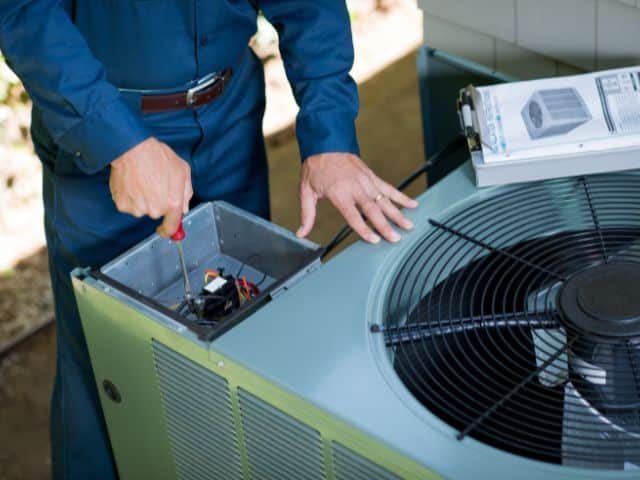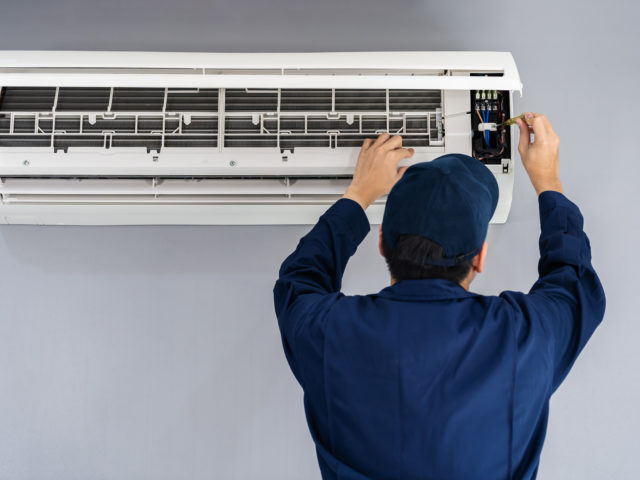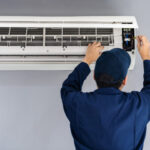Air conditioning systems are a lifesaver during the hot summer months, ensuring that your home remains cool and comfortable. However, like any major home appliance, your air conditioner (AC) is subject to wear and tear, which can lead to costly repairs. Fortunately, there are several proactive steps you can take to avoid expensive air conditioning repairs and keep your system running smoothly. In this blog post, we’ll explore essential tips to help you extend the lifespan of your AC unit, reduce the likelihood of major breakdowns, and avoid unnecessary repair costs.
1. Regular Maintenance is Key
The foundation of preventing costly air conditioning repairs lies in regular maintenance. Just like any other mechanical system, your AC requires periodic attention to keep it in optimal working condition. Scheduling professional maintenance at least once a year is crucial to ensure that your unit operates efficiently and any potential issues are addressed before they become significant problems.
During a routine maintenance check, a technician will:
- Inspect and clean the evaporator and condenser coils
- Check and replace the air filters if needed
- Examine the refrigerant levels
- Inspect the drain lines for blockages
- Lubricate moving parts to prevent friction
By investing in regular professional maintenance, you can catch small issues early and avoid expensive repairs in the future.
2. Change the Air Filters Regularly
One of the easiest and most affordable ways to maintain your air conditioner is by changing the air filters regularly. Air filters trap dirt, dust, and other debris that could clog the system and reduce airflow. When air filters are clogged, your AC unit has to work harder to cool your home, which can lead to overuse of the system and eventual damage.
How often should you change the filters? It depends on factors like the size of your home, the presence of pets, and the frequency of use, but a good rule of thumb is to check the filters every 30 to 60 days. If you have pets or live in a dusty area, consider replacing them more frequently.
3. Ensure Proper Insulation and Sealing
An air conditioner’s job is to cool the air inside your home, but if your home is poorly insulated or has leaks around doors and windows, your AC unit will be forced to work harder to maintain the desired temperature. This extra strain on the system can lead to overheating, increased wear and tear, and eventually costly repairs.
Check your home’s insulation and seal any gaps or leaks around windows, doors, and ducts. This simple task can significantly reduce the load on your air conditioner, keeping it efficient and preventing unnecessary stress on the system.
4. Keep the Area Around Your AC Unit Clean
A clean environment is essential for an efficient air conditioning system. The outdoor condenser unit (the part of your AC that sits outside) should be free from debris, such as leaves, grass, and dirt. When the condenser is clogged with debris, it can’t release heat effectively, leading to poor cooling performance and potential damage.
Make it a habit to check the area around the condenser regularly. Trim any nearby bushes or trees to ensure that there is plenty of space for airflow. You should also clean the coils and remove any dirt buildup, which can obstruct airflow and affect the system’s efficiency.
5. Maintain Proper Refrigerant Levels
Refrigerant is a vital component of your air conditioning system. It absorbs heat from your home and cools the air, so if your system is low on refrigerant, it will struggle to cool your home efficiently. Low refrigerant levels can also cause the compressor to overheat and fail, resulting in expensive repairs or even the need for a full AC replacement.
If you notice that your AC is blowing warm air, it could be a sign that the refrigerant is low. If you’re not experienced in handling refrigerants, it’s best to call a professional to check the levels and refill as necessary. Keeping refrigerant levels at optimal levels is crucial to the overall health of your air conditioning system.
6. Set Your Thermostat Wisely
Your thermostat plays a significant role in the efficiency of your AC system. Setting the thermostat to excessively low temperatures can cause the system to work harder than necessary, leading to higher energy bills and potential mechanical failures.
To maintain efficiency and avoid overworking your AC, set your thermostat to a comfortable yet moderate temperature. The U.S. Department of Energy recommends setting your thermostat to 78°F (25-26°C) during the summer when you’re home, and increasing it by 5-10°F when you’re away. This simple adjustment can reduce strain on your AC and help you avoid repairs related to overuse.
7. Address Issues Early
The sooner you notice a problem with your air conditioning system, the less likely it is to escalate into a major repair. Common signs that your AC may need attention include:
- Uneven cooling or warm spots in your home
- Unusual noises, such as banging or rattling
- Poor airflow or weak airflow
- Water pooling around the unit
- High humidity levels indoors
If you notice any of these signs, don’t ignore them. Call a professional technician to inspect and diagnose the issue. Early intervention can prevent more serious and expensive problems down the road.

8. Invest in a Smart Thermostat
A smart thermostat can be an excellent investment for homeowners looking to optimize their air conditioning system’s efficiency. These devices learn your temperature preferences and adjust the settings accordingly, ensuring that your AC runs only when needed. Some smart thermostats can even detect when you’re away from home and adjust the temperature to save energy.
By using a smart thermostat, you can prevent your AC from running unnecessarily and reduce the strain on the system. This can lead to fewer repairs and a longer lifespan for your air conditioner.
9. Consider Upgrading to a More Efficient Model
If your air conditioning unit is old and frequently breaking down, it might be time to consider replacing it with a newer, more energy-efficient model. Older systems tend to have higher repair costs and lower efficiency, which can drive up your utility bills and lead to frequent breakdowns.
Modern AC units are designed to be more energy-efficient, quieter, and less prone to failure. While the initial investment may be higher, the long-term savings on repairs, energy bills, and maintenance can make it a wise financial decision.
10. Know When to Call a Professional
Lastly, while routine maintenance and care can go a long way in avoiding repairs, it’s essential to know when to call in the professionals. If you experience significant issues like a malfunctioning compressor, refrigerant leaks, or electrical problems, attempting to repair the AC yourself could make matters worse.
It’s always best to hire a licensed HVAC technician to diagnose and fix complex issues. Professionals have the necessary tools, knowledge, and experience to repair your AC safely and effectively, ensuring that the problem is resolved without causing further damage.
Conclusion
Air conditioning repairs don’t have to be expensive or frequent if you take proactive measures to maintain your system. Regular maintenance, such as scheduling professional aircon servicing Hougang, timely repairs, and small changes in how you use and care for your AC can significantly extend its lifespan and keep repair costs down. By following the tips outlined in this blog post, you’ll not only avoid costly repairs but also ensure that your air conditioner continues to provide reliable comfort throughout the year.


